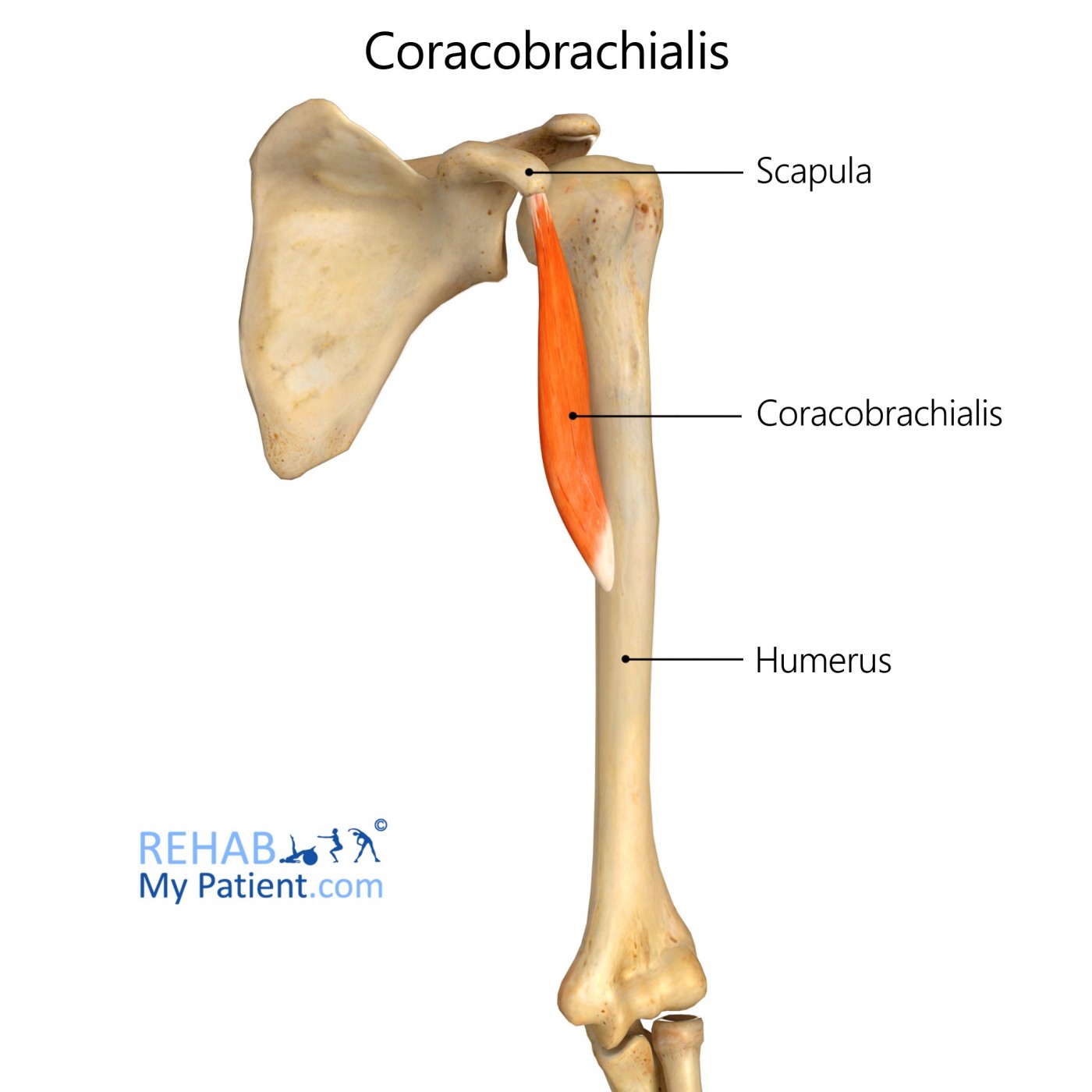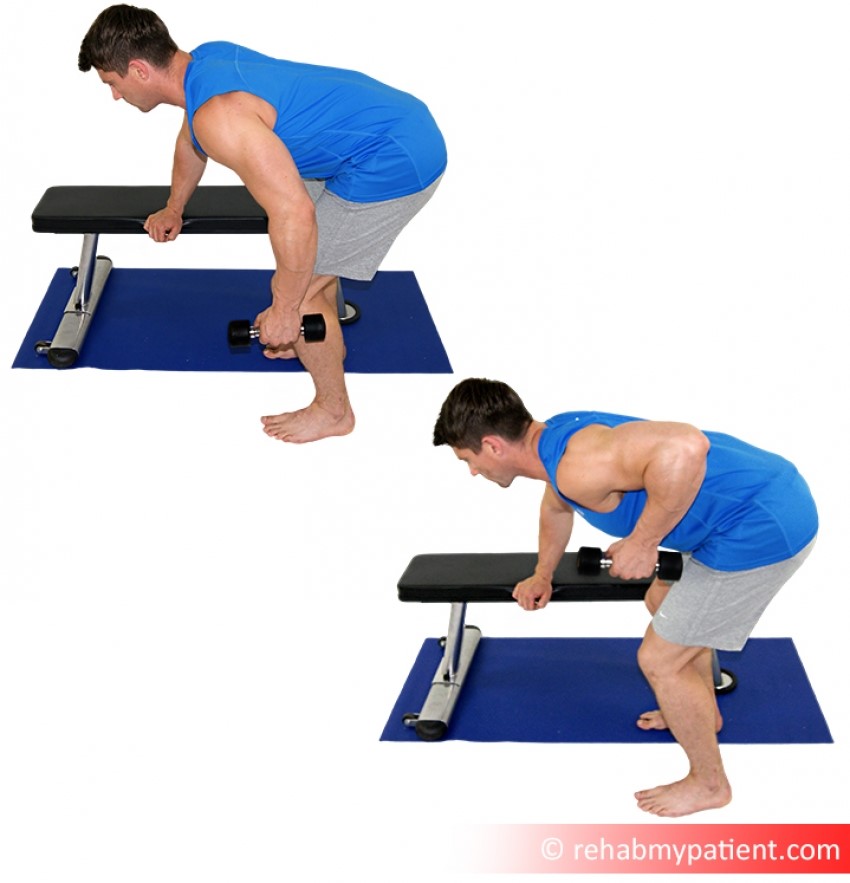Coracobrachialis
Opublikowano dnia 22nd Jul 2020 / Opublikowano w: Ramię

General information
The coracobrachialis muscle is located in the upper inside part of the arm and is attached to the scapula (which is better known as the shoulder blade).
Literal meaning
The crow arm muscle.
Interesting information
The coracobrachialis muscle is located in the upper and middle arm between the brachii and brachialis muscles (the beginning of the tricep muscle and the muscle that flexes the elbow joint. The coracobrachialis works directly with the humerus as it helps to move it forward and towards the torso. The humerus, which is in the upper shoulder area, greatly relies on the performance of the coracobrachialis muscle at all times in order for it to function properly and survive.
The coracobrachialis is a muscle that can commonly be "strained" but not nearly as regularly as its next-door neighbour, the biceps brachii. In the event of an injury, it is important to seek professional rehabilitation and avoid using the injured arm as much as possible in heavy lifting for a minimum of a few days. Injury of the coracobrachialis muscle is not easy to spot – in the event of pain, it is best to consult physician or physical therapist.
Origin
Coracoid process of the scapula.
Insertion
Between the brachii and brachialis or the medial humerus.
Function
Flexes the arm at the glenohumeral joint and to move the humerus towards the body which is otherwise known as "adducting" the humerus.
Nerve supply
Musculocutaneous nerve.
Blood supply
Brachial artery

Relevant research
Gray’s Anatomy actually states that the coracobrachialis muscle is more prone to injury than most muscles as it works directly with more than one muscle. Ultimately, if one muscle fails, it cancels out the other one. However, clinically many practitioners disagree. Continued usage can cause further injury, so proper and professional rehabilitation is highly recommended. Working out using proper techniques will help avoid this issue.
Gray's Anatomy 40th Edition, Published September 26th, 2008 (Currently in print).
Coracobrachialis exercise
Bench rows
You can use a bench (or any other waist level-flat surface) and either a dumbbell or resistance band for this exercise. Plant your hand on the bench and the opposite foot flat on the ground. Place your knee (same side as the hand planted on the bench) on the bench and look forward. From there, you'll make a "starting the lawnmower" action with the dumbbell or resistance band by bringing it up approximately to chest level and slowly lowering it back down.

Zapisać się
Zarejestruj się już teraz, aby skorzystać z bezpłatnego okresu próbnego!
Zacznij korzystać z Rehab My Patient już dziś i zrewolucjonizuj proces przepisywania ćwiczeń, aby zapewnić sobie skuteczną rehabilitację.
Rozpocznij 14-dniowy bezpłatny okres próbny